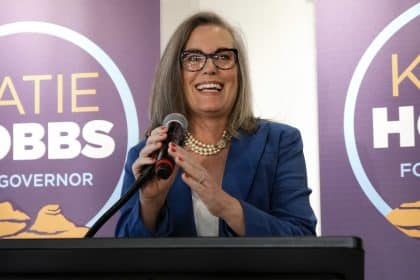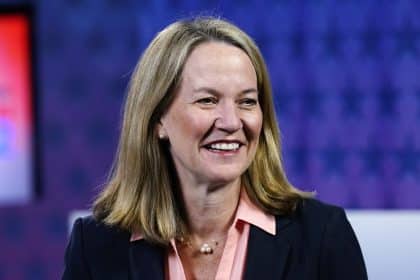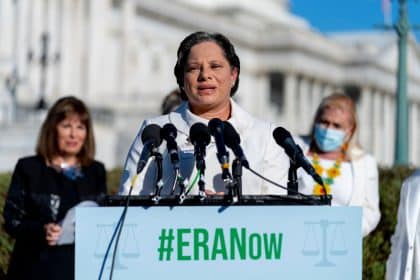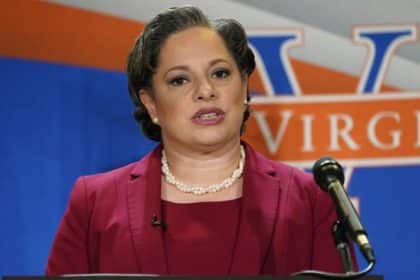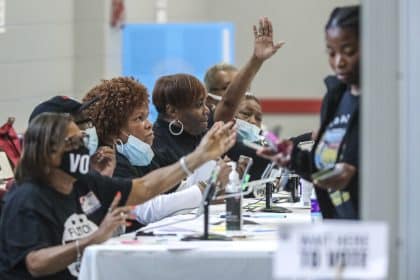Though Some Races Intrigue, Poli Sci Professors Expect Few Midterm Surprises
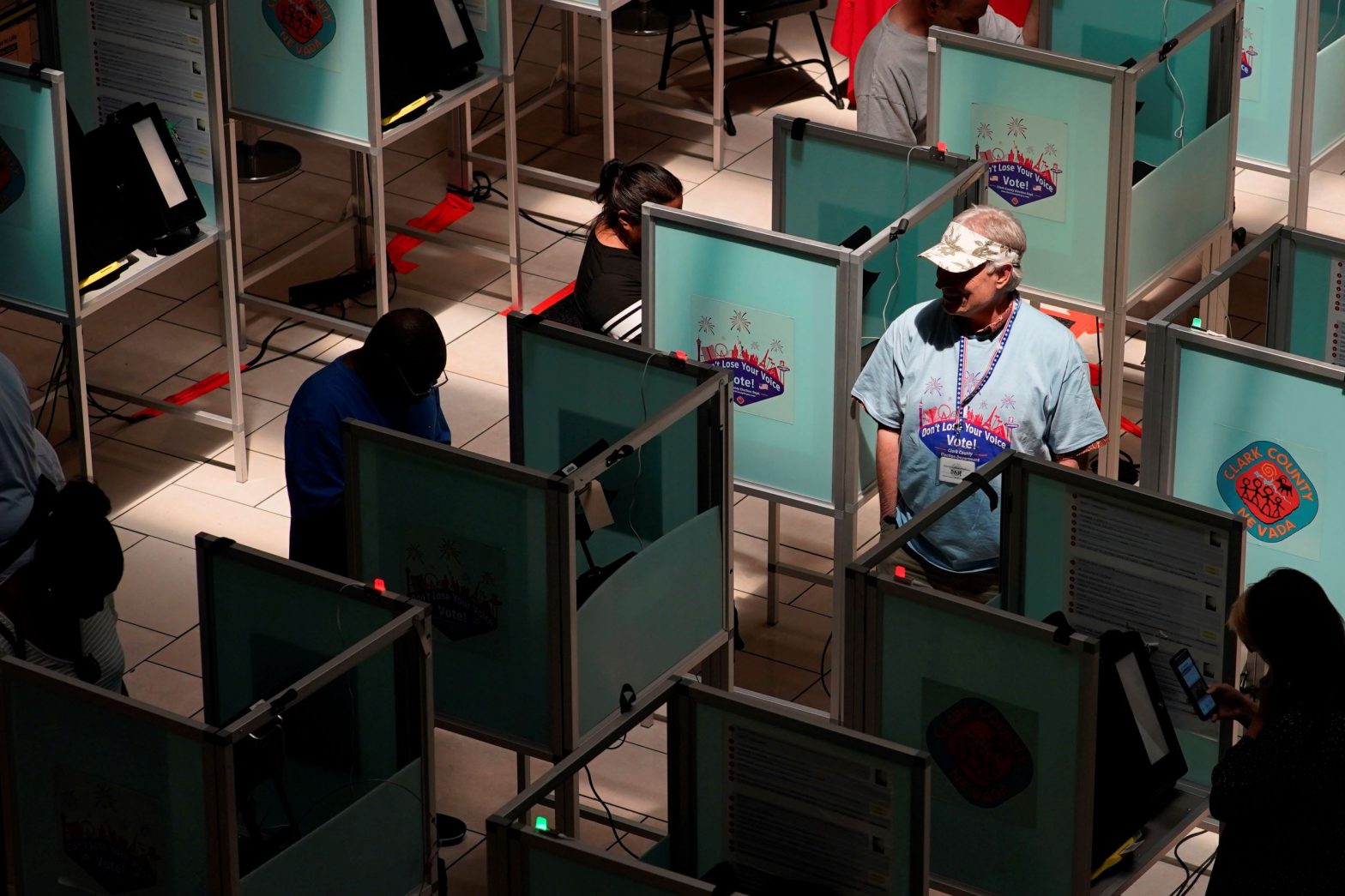
WASHINGTON — There are fewer than 20 days left until the critical midterm elections, with early voting underway or about to get underway in several battleground states.
While many close races are predicted, a sampling of the opinions of political science professors across the country revealed three things about where we’re likely to land the morning after Election Day:
- There will be few real surprises about the outcomes of the contests.
- The public’s perception about the economy will likely be the driving factor determining who wins and loses.
- Gullibility will play as big a role as any other factor in how voters actually cast their ballots.
Speaking broadly of the election Kevin M. Wagner, professor and chair of the Department of Political Science at Florida Atlantic University in Boca Raton, said given the current 50/50 split between Republicans and Democrats in the U.S. Senate, he’ll be watching the outcomes of the Senate in Georgia, Florida, Pennsylvania and Arizona with particular interest on election night.
“One of the keys [to these contests] is whether the Trump coalition comes out for Republicans other than the former president,” Wagner said, emphasizing his opinions were his own and not those of his university.
“Of course, women voters will also be a key [to determining the outcome of many races] and many [people] will be watching to see if there is greater turnout because of the Supreme Court’s decision in Dobbs v. Jackson Women’s Health Organization, in which the court held that the Constitution of the United States does not confer a right to abortion,” he added.
That said, Wagner conceded that right now, “it looks like the economic issues, especially inflation, are what’s most important to voters. But these things can change,” he said.
Colorado
Robert Duffy, a professor in the political science department of Colorado State University in Fort Collins, offered a more state-specific analysis in an email to The Well News.
“The race I am most interested in is the new congressional district — CD 8, drawn to be competitive,” he said.
The contest pits Democratic State Rep. Yadira Caraveo, a four-year member of the state House who hopes to be the state’s first Latina member of Congress, against Republican State Sen. Barbara Kirkmeyer, who got into politics more than 20 years ago, after her concerns about possible hazardous waste sites near her home were brushed off by a local official.
When it drew the state’s new congressional district lines, Colorado’s almost equally new Independent Redistricting Commission said the district would probably lean about 1.3% toward the Democrats.
Many political pundits in the state, however, believe the Republican candidate has a slight advantage this year given that the party out of power historically makes significant gains in midterm elections.
Duffy said outside of his own interest, it’s hard to say which races have captured the general public’s attention in Colorado.
“I think the consensus is that, aside from CD 8, none of the other federal or state level races are expected to be very competitive. There will be a number of close state legislative races, though, but not in this part of the state,” he wrote.
“There may be some surprises in state level races, which generally receive very little media attention and where redistricting means many candidates — including incumbents — are running in ‘new’ districts, but I have seen very little evidence of anything surprising in state level and federal races,” Duffy said, adding, “the little available public polling, fundraising totals in those races, etc., all point in the same direction.”
The one possible exception is CD 3, where Rep. Lauren Boebert, the often controversial Republican firebrand, is running for reelection.
Duffy said Boebert’s district is “so Republican, it’s hard to see her losing.”
“But they call them surprises for a reason, right?”
Asked if there is a single voting block that might prove pivotal to the outcome of this year’s election, Duffy said he’d be hard pressed to single one out “other than to state the obvious.”
“Unaffiliated voters in this state are the single largest bloc, outnumbering both parties in registration,” he said. “In the last 10 to 15 years, those voters (especially along the Front Range) have tended to favor Democrats in state level races — resulting in Democratic victories.”
The Front Range is a mountain range of the Southern Rocky Mountains, located in central Colorado.
Twenty years ago, registered Republicans outnumbered registered Democrats by about 180,000, but that’s no longer the case as Democrats now outnumber Republicans by about 125,000.
“Even with that swing, it’s unaffiliateds that make the difference. And if Republicans continue to alienate those folks, it’s hard to see them winning statewide, even in a midterm election with high inflation,” he said.
While much of the coverage of the election since the primaries has focused on hot-button issues of abortion and the economy, in Colorado, Duffy said, the decisive and divisive issue has and continues to be Trumpism.
“The former president is deeply unpopular here, and so Republicans suffer from the Trump brand,” the professor said. “Embracing Trumpism, election denialism etc., is a suicide pact for Republicans running statewide — but they can’t get nominated in their own party without drinking the Kool-Aid or pretending to drink it in the primary before walking it back in the general.
“But that is okay for those Republicans running in safe congressional districts and in safe state legislative districts, county offices, etc. In those places, as elsewhere, the more extreme the better for winning the primary, and then the general,” he continued.
“The extreme positions help them raise money, and the angrier they can keep the base the more money keeps flowing to them. But that dynamic puts candidates running statewide in an untenable position — because unaffiliated voters are turned off by the crazy.”
Duffy, however, offered one caveat to that statement.
“The state had started shifting away from Republicans before Trump, he just accelerated it,” he said. “The party’s stance on culture issues (abortion, guns, gays) and then things like climate and vaccines, are just deeply unpopular with most unaffiliated voters, young people, those with higher education levels, those in urban and suburban areas, and so on.
“Colorado tracks the national trends and happens to be one of the most highly educated states. So Republicans losing support with those groups has predictable results, even if many Republicans can’t acknowledge it,” Duffy said.
Washington State
Cornell W. Clayton, the director of the Thomas S. Foley Institute for Public Service and Public Policy at Washington State University, told The Well News he’s watching three Washington state races with particular interest this year.
“The secretary of state race is interesting because that office has been held by Republicans for over three decades, and for many years has been the only state-wide elected office held by the GOP,” Clayton wrote via email.
“When Republican Kim Wyman resigned to take over election security in the Department of Homeland Security for the Biden administration, the Democratic governor appointed a moderate Democrat — Steve Hobbs — in part to get him out of the legislature where Hobbs had bottled up the governor’s climate legislation.
“Hobbs has been in the office for a year, and is running against Julie Anderson, the Thurston County auditor, who is running as a nonpartisan independent,” Clayton said.
“Anderson was formerly a Democrat, but has based much of her campaign around the issue of neutral competence in the office and that the head of elections should be a nonpartisan position. This message has some crossover appeal and the latest polls show the two in a virtual tie with 40% still undecided,” he said.
Clayton is also keeping close tabs on the race in the 3rd Congressional District, where the Republican incumbent, Jamie Herrera Beutler, who voted to impeach former President Donald Trump for his role in the Jan. 6, 2021, siege of the U.S. Capitol, lost in the primary to Trump-backed firebrand Joe Kent.
“Kent faces a Democratic newcomer, first-time candidate Marie Gluesenkamp Pérez,” he said. “The 3rd District used to be more of a swing district, but has trended decidedly red over the past decade.
“This should have been an easy election for Republicans, but Kent’s extremist views are making it a much closer contest. Most recently polls show Kent ahead but barely,” he added.
Last on Clayton’s list is the U.S. Senate race between long-time Democratic incumbent Patty Murray and Republican newcomer Tiffany Smiley.
“Again, in a blue state like Washington, Murray should have an easy contest, and most polls still show her comfortably ahead. But Smiley has run a good campaign and raised a lot of money,” he said. “Their first debate is coming up and it could have an impact on the trajectory of the race. It’s still Murray’s to lose, but … ”
Asked what voting bloc might prove most influential in the election in Washington state, Clayton offered that it’s hard to say at this point.
“Suburban women seem to be very energized by the Supreme Court’s Dobbs decision, but there is also a strong, if localized, base of Trump Republicans in different parts of the state (mostly in the eastern half of the state and the southwestern areas) who also seem quite energized.”
Clayton noted the Washington state GOP appears to be worried about the traction of the abortion issue, and points to “a weird flyer” the party has been sending out to voters in several swing districts as evidence of their concern.
“Essentially they’re trying to neutralize the issue by claiming the Democratic candidates in those districts are ‘too extreme’ on abortion rights — for instance, claiming they favor partial birth abortion.
“It’s an interesting strategy — I’m not sure it will work — but it shows the GOP thinks that the abortion issue is a real problem for them with the swing suburban voters.”
Georgia
Scott H Ainsworth, professor of Political Science at the School of Public and International Affairs at the University of Georgia, said he’s watching both the state’s governor’s race, between incumbent Republican Brian Kemp and Democrat Stacey Abrams, and the U.S. Senate race between incumbent Democrat Raphael Warnock and Republican Herschel Walker.
Though he offered no prediction on the outcome, he said one surprise outcome might be if the Democrats retain the Senate seat and the Republicans hold onto the governorship.
“If that occurs, there will be considerable discussion of ‘candidate quality,’” Ainsworth suggested.
“Typically, candidate quality debates are window dressing, as partisans are reluctant to reject their own party’s candidate. But candidate quality does affect independents and mobilization efforts,” he said.
“Keep in mind that off-year elections almost always favor the party that does not control the White House. Results should be interpreted with the understanding that this should be a good year for the Republicans,” Ainsworth added.
Florida
We return to Florida and the thoughts of J. Edwin Benton, professor at the School of Interdisciplinary Global Studies at the University of South Florida in Tampa.
Prior to talking to The Well News by phone from his family’s second home in Georgetown, South Carolina, Benton emailed an article he wrote for The Conversation just after the last midterm election.
The Conversation is a nonprofit, independent news organization featuring articles written by academic experts and edited by journalists.
Among the things Benton argues in the piece is that voters typically vote based on past performance of the candidate or party and that the state of the economy at the time of an election is always — always — its defining issue.
“It was James Carville who coined the phrase, in 1992, but it still holds true today: ‘It’s always about the economy, stupid,’” he said after we connected.
“I mean, I grew up during the Vietnam War period, and during that time the top news stories reported by Walter Cronkite and Huntley and Brinkley and Barbara Walters were all about what was going on in Vietnam,” he continued.
“But at the same time, according to Gallup and the other major polls of the day, the top concerns of the American public continued to be the economy and pocketbook issues. People always vote their pocketbooks. … So the economy matters. It matters more than anything else.”
To Benton, who is also the former managing editor of State and Local Government Review, a peer-reviewed academic journal, the Democrats’ emphasis on the abortion issue following Dobbs has turned out to be a “miscalculation.”
“That is to say, to the extent that women will vote in Florida, that will probably be an overriding issue,” he said.
“But whether that’s enough to help Democrat Charlie Crist in his quest to unseat incumbent Republican Gov. Ron DeSantis or Democratic Rep. Val Demings in her bid to unseat incumbent Republican Sen. Marco Rubio, is another question,” he said.
“Right now it looks, based on what I’m seeing in the polls, that DeSantis has a fairly comfortable lead over Crist, and what that boils down to is money,” Benton said. “DeSantis has a huge war chest and he’s been using it to saturate the media market with ads, most of which claim Crist will raise your taxes.
“In fact, one of them features an old clip of Crist saying, ‘If I had to raise taxes, I would,’” he said.
“I would say the same factor — money — makes Demings chances of unseating Rubio quite slim — it’s just easier for an incumbent to raise large sums of money and pour it into TV ads, which count a lot. People listen to them.”
The obvious follow up question: Why? Especially given the tenuous nature of claims most political ads assert.
“The public is dumb,” Benton said. “They’re stupid.”
“But I don’t mean that in a mean-spirited way. What I mean is they just don’t pay enough attention to politics and what’s actually being said in these ads because there are greater priorities for them in life — like the well-being of their families — consequently, they fall very easy prey to these ads,” he said. “Which is why the Tampa Bay Times does a political fact check throughout these campaigns.
“I mean, campaigns do say preposterous things and the public in a general sense, just doesn’t have the knowledge of the issues to discern what is just hyperbole or exaggeration — or just plain old negative campaigning.
“Studies time and again — and I wish I had the citations handy — have shown that the public has often been duped by this outlandish kind of negative campaigning,” Benton continued. “That may be repulsive to campaign reformers, but it works. And if it works, they’re going to continue to use it.”
Benton allowed that his comments about the voting public still seemed harsh to him.
“In all fairness to the public, and what I tell my students, is that when it comes to the totem pole of priorities in life, politics ranks at the very bottom,” he said.
“You’ve got to feed your family, take care of the kids, get them to school every day, keep a roof over their head … and all those things, rightly, pull your attention away from the political arena.
“So when it comes to elections and the ‘issues’ being raised, the public, much of the time, is simply ignorant to what’s really gone on and what’s really meaningful or not about what the candidates are claiming.”
Aside from the respective candidates’ ability to raise money and the air wars over local media, Benton said DeSantis’ direct, very hands-on role in creating the state’s new district maps will also play a significant role in the election outcome.
“And he’s also using his influence and power across the state to influence not only county and city elections, but school board races too,” he said.
“In case you haven’t noticed, Ron DeSantis is already running for president,” he added.
Dan can be reached at [email protected] and at https://twitter.com/DanMcCue.


















